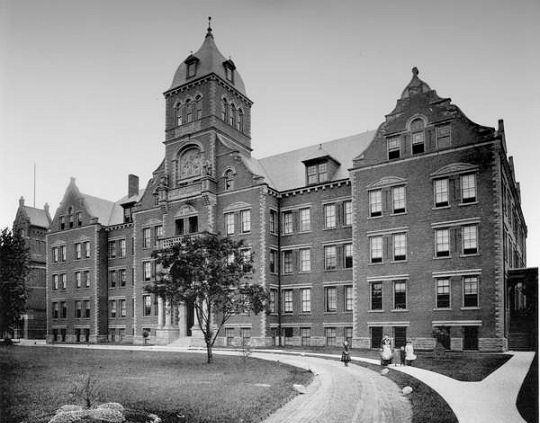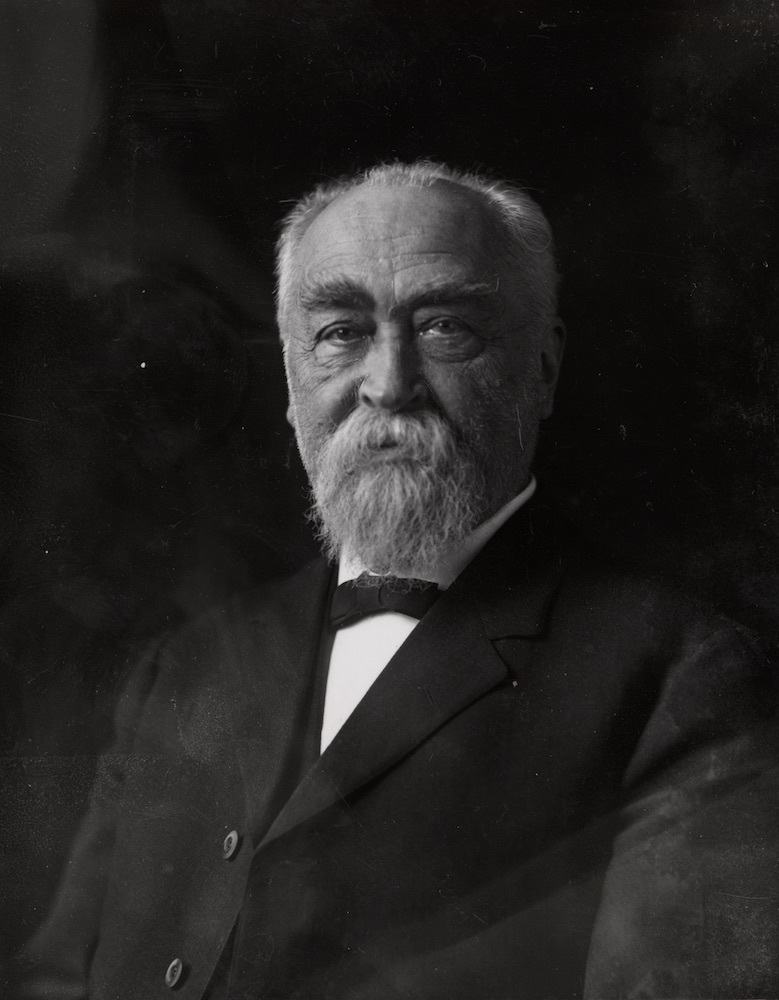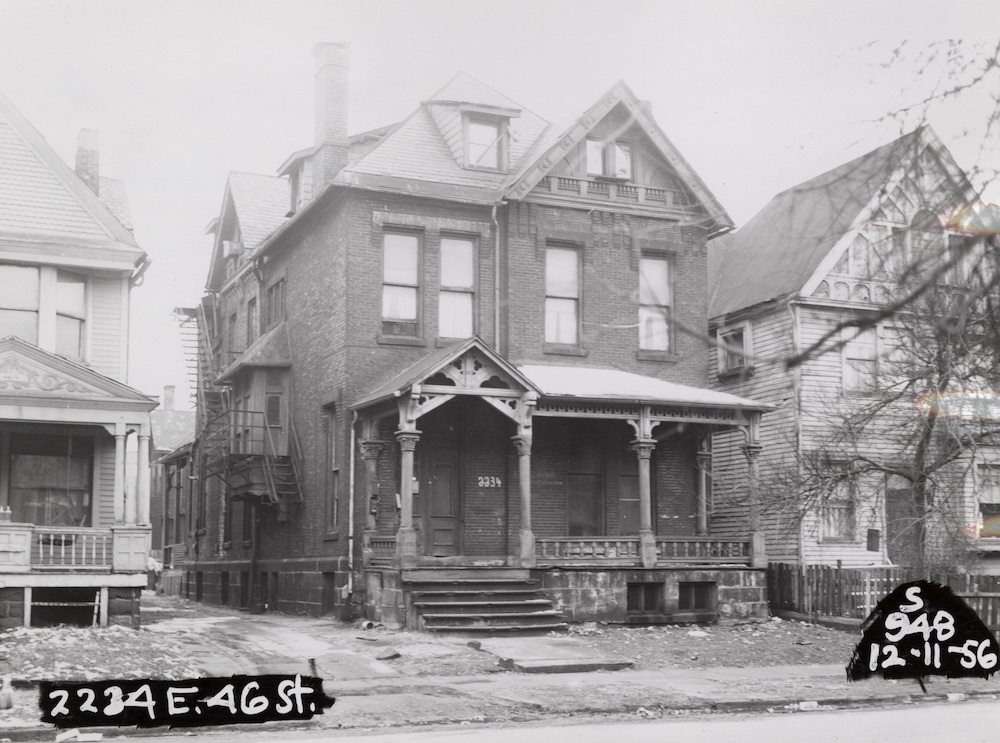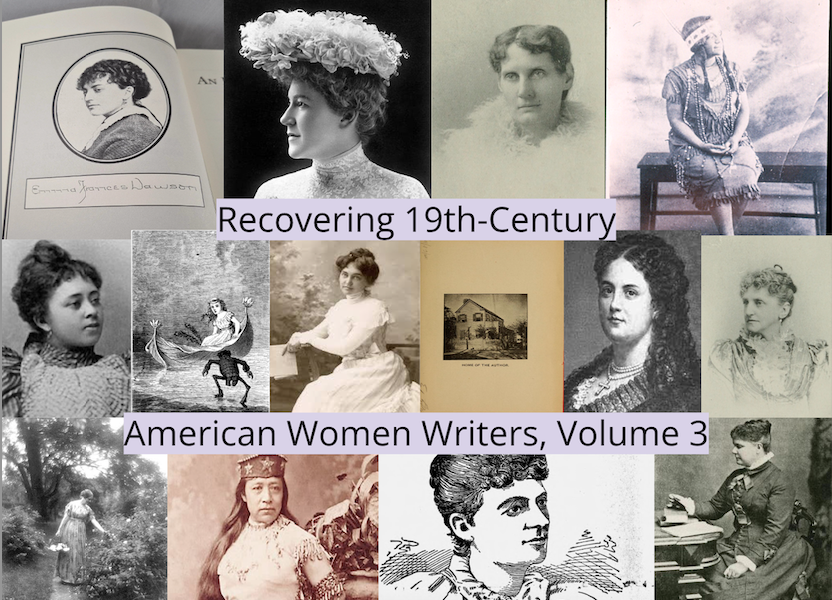
The Life and Legacy of Martha Wolfenstein
Martha Wolfenstein was a Jewish Prussian-American woman born in Insterburg, Prussia, on August 5th, 1869, to Samuel and Bertha Wolfenstein. She was the second child of six, and the first-born daughter of the family. By 1870, the Wolfenstein’s had immigrated to St. Louis, Missouri, where Rabbi Samuel served for the Congregation B’nai El for a few years before moving to Cleveland, Ohio to become the superintendent to the Cleveland Jewish Orphan Asylum. Martha would spend the rest of her life in Cleveland, living with her father in the orphanage. At the age of sixteen, her mother fell ill with tuberculosis, dying soon after. Wolfenstein left schooling after this, taking care of the household and her younger siblings in aid of her father. Not much is known about Martha’s personal life, as she was a private and humble woman. She considered only the “bare essentials” to be necessary information of her life, preferring to focus on her literary work when it came to self discussion. She attempted to refuse being included in the Yearbook of the Jewish Publication Society of America, though they insisted on including her despite her protests.
(Right: Samuel Wolfenstein, Cleveland Public Library Photograph Collection)


Her first experiences with writing came from translation of German literary works, and as she grew older she turned to writing her own works of fiction, including her debut novel Idyls of the Gass, which draws heavy inspiration from the tales from her father who had grown up in a judengasse himself in Moravia. She also published a collection of short stories titled A Renegade and other Tales, and other short stories she had published in magazines such as the Lippincott Magazine. It is said she was working on a play before her death in 1906, but there is no known record of any information about what the play may have been about. In her time, she wrote with writer Israel Zangwill, and was compared, often by him, to other contemporaries such as Emma Lazarus and Grace Aguilar.

Wolfenstein died on March 17th, 1906, falling ill from tuberculosis as her mother did before her. in 1907, the National Council of Jewish Women of Cleveland named a home for women “Martha House” in her honor. Today, the Cleveland Public Library holds a digitalized record of letters sent to her on their website.
Left: Original “Martha House”, Cleveland Public Library Photograph Collection
Idyls of the Gass, and the enduring power of culture and faith
After gaining attention from her publications in the Lippincott Magazine, The Jewish Publication Society reached out to Martha for some of her work, and with some urging from the magazine, she sent them the draft for Idyls of the Gass, which they wanted to publish for Hannukah. Published in 1901, the novel, made up of short, interconnected stories that make up each chapter focusing on the judengasse, or “Jewish-street” of Maritz, Austria, in the early-to-mid 19th century. Judengasses were owned by richer, often Christian, members of town, and the Jewish community that lived in one was often poor, and kept in their under lock-and-key, with many having rules of curfew such as no one being allowed out on holidays or after dark.
(Right: Letter from the Jewish Publication Society to Wolfenstein regarding the publication of Idyls of the Gass, Cleveland Public Library Digital Gallery)

With some digressing for other relevant stories, the novel follows Maryam and Shimmelé, grandmother and grandson. Shimmelé is a wonder-child, noted by Maryam to be exceptionally skilled in reciting prayers and scriptures to the point she is convinced he will become a rabbi when he grows older, which is the most prestigious role one can have in the community of the gass. Shimmelé, no more than six at the novel’s start, is as curious as he is precocious, and finds himself constantly questioning the in’s and out’s of the practices of Judaism. However, rather than suppressing this trait of the boy’s, Maryam finds it an encouraging show of his intelligence. Over the arc of the stories, Wolfenstein shows just how interwoven the community of the gass is through the eyes of Maryam and Shimmelé, who aid the community in different ways.
As the narrative follows Maryam and Shimmelé through events such as encounters in the schoolyard, cooking dinners/baking for ceremonies and holidays, it is revealed that Maryam does her best to take care of those in the gass who have less than herself, often making little “mistakes” such as making too much of a meal so that she is forced to give it to others, who she knows have no meal of their own for the night. Although at first oblivious to what Maryam is doing, as he grows, Shimmelé begins to grow as generous as his grandmother, foremost in his care and attention to his blind uncle Yosef, who he becomes a companion to in the latter parts of the novel, even denying himself a hat for the winter so the money can be put towards buying a cure for Yosef–although Shimmelé knows that no cure exists, the search is the one thing that gives Yosef hope, and so Shimmelé plays along with his search. In this way, growth for Shimmelé is defined by his growing compassion and generosity, akin to Maryam’s before him.
“God will reward you, Madam Maryam.”
Wolfenstein 122
The novel has a rather shocking turn at its end; though hints of anti-Semitism are seen throughout the novel, mostly through exposition in narration, the end of the novel sees it come back into play in a hugely prominent role. The gass is attacked by an anti-Semitic mob who have convinced themselves the street is sacrificing Christians for blood rituals. In the violence, Maryam is targeted, and she and Yosef are killed. Shimmelé, who hid during the attack, comes out once the mob has left to find the bodies of his grandmother and uncle. Overcome with grief, he prays, knowing that he has hope and respite in his faith.
“Then Shimmelé remembered God”
Wolfenstein 293
Throughout the novel, when it comes to generosity and giving freely to others, both the narrator and Maryam herself cite the tenets of Judaism as the main motivation in these traits. The novel makes it clear in its theme that faith is not just something to be memorized and learned, such as the repetition of prayers, but something that must be internalized as lessons about morality and human goodness, as seen in Maryam’s character, and what she is able to pass down onto Shimmelé. Faith, and the kindness of heart that it inspires, has brought the gass together throughout the other hardships seen in the novel it is clear in those last few pages with the praying Shimmelé that faith will bring the gass together after this hardship as well.
Wolfenstein in the Modern Day
As first and foremost a story focused on Judaism, Idyls of the Gass is a very presently important text. In the past few years, anti-Semitism has been on the rise in the world, with 2021 being a record year for anti-Semitic harassment, vandalism, and violence, with 2022 showing no signs of this trend slowing down. Although there is the mistakenly oft-thought assumption that anti-Semitism only began, or at least only became widely spread in the 1930’s with the rise of Adolf Hitler to power in Germany, Wolfenstein’s novel shows that this is not the case–even in the 1800’s, the destruction caused by anti-Semitism, and the mob mentality that those who espouse anti-Semitic beliefs engage with, was well-known, by no group more than those most affected by it. By recovering Idyls of the Gass and bringing Wolfenstein’s thoughts and insights into the modern day, the Jewish culture and community can be more understood, and perhaps this can help to combat the growing anti-Semitism seen in the present day.
“Pity them…this maddened, raging mob. They too are victims…of bigotry and corruption, of ignorance and envy and hate.”
Wolfenstein 286
References
Benjet, Rosalind G. “Martha Wolfenstein”, American Women Prose Writers, 1870-1920.
Hagen, Lisa. “Antisemitism is on the rise, and it’s not just about Ye,” NPR, 2022, https://www.npr.org/2022/11/30/1139971241/anti-semitism-is-on-the-rise-and-not-just-among-high-profile-figures.
Martha Wolfenstein Collection, Cleveland Public Library Digital Gallery, https://cplorg.contentdm.oclc.org/digital/collection/p4014coll9/id/41239/rec/1.
Sarna, Jonathan D. “Martha Wolfenstein.” Jewish Women’s Archive, https://jwa.org/encyclopedia/article/wolfenstein-martha.
Wolfenstein, Martha. Idyls of the Gass, Philadelphia, Jewish Publication Society of America, 1901.
“Antisemitism Today”. United States Holocaust Memorial Musem, 2022, https://www.ushmm.org/antisemitism/what-is-antisemitism/antisemitism-today
